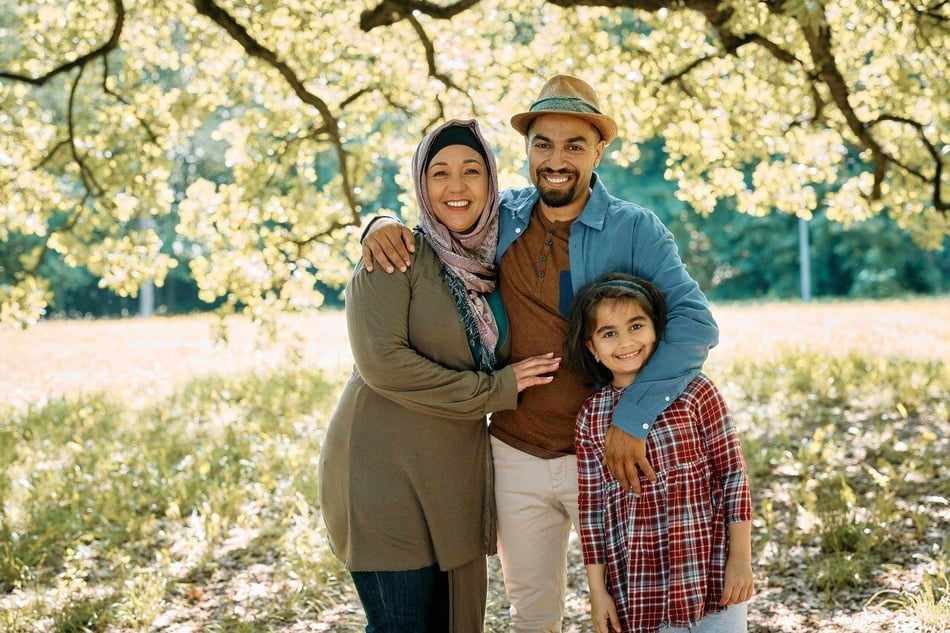Understanding Family-Based Immigration: Process, Eligibility, and Overcoming Challenges for Successful Sponsorship

Family-based immigration is a cornerstone of the United States' immigration system, providing a pathway for thousands of families to reunite and build their lives together in the United States. For those seeking to sponsor a family member or immigrate through their relatives, understanding the family-based immigration process, eligibility requirements, and methods to overcome common challenges is vital to embark on a successful immigration journey.
In this in-depth blog, we aim to inform and empower you with crucial knowledge about family-based immigration in the United States. We will explore sponsorship eligibility criteria, outline the application process, and provide insights into expected timelines and fees. Furthermore, we will discuss common obstacles faced by applicants and their families and provide guidance on how to tackle those challenges effectively. Finally, we will emphasize the essential role of an experienced immigration attorney in navigating the complexities of family-based immigration, ensuring a smoother and more efficient sponsorship process.
Novo Legal is a distinguished law firm, with offices in Denver and Seattle, specializing in immigration and criminal defense for individual families and communities. Our team of dedicated lawyers prides itself on providing expert legal representation and personalized services to our clients, utilizing decades of experience to steer you through the intricate world of family-based immigration and ensure a successful outcome.
Sponsorship Eligibility and Family-Based Immigration Categories
To initiate the family-based immigration process, a U.S. citizen or lawful permanent resident (LPR) must sponsor their eligible family member to obtain an immigrant visa. Eligible family members fall into two categories:
- Immediate Relatives: U.S. citizens can sponsor their spouses, unmarried children under age 21, and parents without waiting for a visa number to become available. There are no annual caps on the number of immediate relative visas issued, ensuring an expedited process.
- Family Preference Categories: The immigration system places annual limits on visas for more distant family members, who are assigned a "priority date" and must wait for their visa number to become available. Family preference categories include:
- F1: Unmarried children of U.S. citizens (and their minor children).
- F2A: Spouses and unmarried children under 21 of lawful permanent residents.
- F2B: Unmarried children over age 21 of lawful permanent residents.
- F3: Married children of U.S. citizens (and their spouses and minor children).
- F4: Siblings of U.S. citizens who are at least 21 years old (and their spouses and minor children).
The Family-Based Immigration Application Process
Sponsoring a family member for U.S. immigration involves a multi-step process:
- Filing an I-130 Petition: The sponsor, also known as the petitioner, must file a Form I-130, Petition for Alien Relative, with U.S. Citizenship and Immigration Services (USCIS), providing proof of their U.S. citizenship or LPR status and evidence of the qualifying family relationship.
- National Visa Center (NVC) Processing: Once USCIS approves the I-130 petition, the case is transferred to the NVC, which assigns a case number and collects fees, the immigrant's visa application, and supporting documents.
- Visa Number Availability and Consular Processing: The NVC will notify the petitioner and applicant when a visa number becomes available. The applicant will then schedule a medical examination and an interview with the U.S. consular office in their home country. If the consular officer approves the applicant, they will receive an immigrant visa packet to present at the U.S. port of entry.
- Adjustment of Status: If the applicant is already in the United States, they may apply for adjustment of status to become an LPR once a visa number is available.
Common Challenges and Tips for a Seamless Family-Based Immigration Process
Applicants and their sponsors may encounter various challenges during the family-based immigration process, including:
- Documenting the Family Relationship: To avoid delays or denials, ensure that you provide ample evidence of the qualifying relationship, such as birth, marriage, and adoption certificates.
- Meeting Affidavit of Support Requirements: Sponsors must provide proof of financial ability to support the immigrant relative through an I-864 Affidavit of Support. To avoid complications, be prepared to submit comprehensive financial information, including tax returns, employment verification, and bank statements.
- Overcoming Inadmissibility: Some immigrants may be deemed inadmissible, requiring a waiver to proceed with the application. Consult an experienced immigration attorney to evaluate the viability of a waiver and develop a strategy for overcoming inadmissibility grounds.
- Coping with Long Wait Times: Some family preference categories experience significant wait times for visa availability. To maximize the chances of a timely reunion, ensure that your application is complete and accurate and promptly respond to any requests for additional information from USCIS or the NVC.
The Role of an Experienced Immigration Attorney in Family-Based Immigration
Engaging a skilled immigration attorney is invaluable in facilitating a smooth family-based immigration process:
- Comprehensive Case Evaluation: Experienced attorneys assess each unique case, determining the most suitable immigration path and identifying potential eligibility issues.
- Thorough Documentation and Accurate Filing: Attorneys ensure that all forms, supporting documents, and evidence are thoroughly prepared, complete, and filed correctly, minimizing delays and errors.
- Preparing for Interviews and Appeals: Immigration attorneys prepare applicants for consular interviews, providing guidance on questions, documents, and potential concerns. If necessary, attorneys can also assist with filing appeals for any adverse decisions.
- Overcoming Challenges: Skilled immigration professionals guide clients through various hurdles, such as document procurement, financial support concerns, and waiver applications.
Conclusion
Family-based immigration offers a valuable opportunity for the reunification of loved ones in the United States. By understanding the process, eligibility requirements, and strategies for overcoming common challenges, you can successfully navigate the complexities of family-based immigration.
At Novo Legal, our experienced immigration attorneys are passionately committed to guiding you every step of the way, ensuring that your family sponsorship process is as smooth and efficient as possible. With our dedication to excellence and personalized approach, you can be confident in achieving a successful outcome for your U.S. immigration journey. Contact Novo Legal today to discuss your family-based immigration needs and learn how our skilled legal team can provide invaluable assistance in bringing your loved ones together in the United States.



